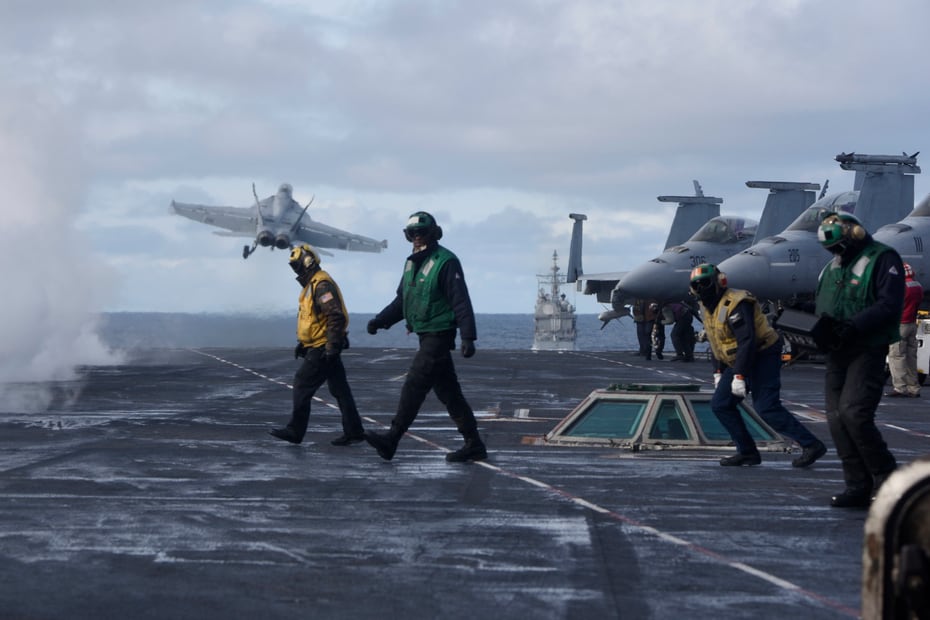WASHINGTON — A Turkish-American diplomatic dispute that entangled the F-35 fighter aircraft program appears at least one step closer to resolution with Turkey’s release of American Pastor Andrew Craig Brunson on Friday.
A Turkish court convicted Brunson, who has been held since 2016 on terrorism charges he denied, but the court has now released him from house arrest and allowed him to leave Turkey. The case had become a a cause célèbre among Christian evangelicals and a vocal priority for U.S. President Donald Trump and Vice President Mike Pence—as well as a source of friction between the two NATO allies.
Still, tensions remain high over Turkey’s decision to deploy the Russian-made S-400 air- and missile-defense system, its refusal to follow U.S. sanctions on Iran, and U.S. support for Kurdish militants fighting the Islamic State, among other issues.
Senate Armed Services Committee member Ben Sasse, R-Neb., said Friday he was “grateful that Pastor Brunson’s unjust detainment is coming to an end,” but Brunson is “just one of many Americans, U.S. State Department employees, and Western nationals that that [Turkish President Recep Tayyip] Erdogan continues to hold hostage.”
“There is still work to be done and President Erdogan has a long way to go before acting like the NATO ally we expect him to be,” Sasse said in a statement.
Sen. Lindsey Graham, chairman of the Senate subcommittee on appropriations handling U.S. foreign assistance and a SASC member, expressed wariness immediately following the news.
“I’m pleased, I’m not going to celebrate until he gets home,” Graham, R-S.C., said in a tweet. “I want to thank the Trump administration, President Trump and Vice President Pence.”
The United States has depended on Turkey’s Incirlik Air Base to conduct its air campaign against the Islamic State in Syria.
Lawmakers have made the Lockheed Martin-made F-35 a bargaining chip in the complex relationship between the two allies. The annual defense policy and appropriations bills, signed into law in recent weeks, included language to delay sales of the fighter aircraft to Turkey over Brunson’s detainment and its plans to buy the S-400 system.
Turkish pilots and maintainers arrived in July at the F-35 international partner training program in Arizona ― but the first two jets themselves will remain in U.S. custody for at least the next year, the Pentagon said then. Washington is concerned that if Turkey obtains custody, it could lead to Russia gaining sensitive technical information about the aircraft through sensors in the S-400 system.
While Defense Secretary Jim Mattis acknowledged concern for Turkey’s “authoritarian drift,” he lobbied against the legislative language, arguing a disruption in the Turkish supply chain would result in an aircraft production break, delaying delivery of 50-75 F-35s. That would take approximately 18-24 months to re-source parts and recover, he told lawmakers.
RELATED

Turkey has been a partner in the program since 2002 and has plans to acquire 100 of the fighters.
Pentagon plans call for acquiring a total of 2,456 F-35s. Allies are expected to purchase hundreds of additional F-35s, and eight nations, including Japan, South Korea, Denmark and Norway, are cost-sharing partners in the program with the United States.
Turkish officials have threatened reprisals if the U.S. cuts it off from the F-35 and have defended the choice to buy the S-400 as the second-best option only because NATO allies declined to sell Western hardware.
With reporting by Tara Copp and Valerie Insinna in Washington, D.C., and Burak Ege Bekdil in Ankara.
Joe Gould was the senior Pentagon reporter for Defense News, covering the intersection of national security policy, politics and the defense industry. He had previously served as Congress reporter.




